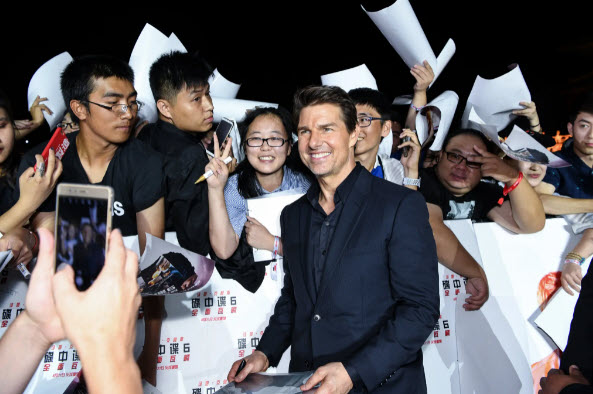
Hollywood Came to China; It Was Epic.
By James Parker
01 February 2022
EXCERPT
The two stories, the humbling of Hollywood and the swelling of Chinese soft power, twist and combine across Schwartzel’s masterfully organized book. Hollywood is felled by, among other things, prestige television and the collapse of the DVD market. (In 2003, on the day of its release, Disney sold eight million copies of the “Finding Nemo” DVD; by 2008, Disney’s DVD sales had fallen by 33 percent, more than halving the studio’s operating income.) As domestic and global box offices slump, China — slowly and suspiciously opening itself up to Western influences — becomes the new frontier: a great lake of virgin moviegoing imagination, a vast untapped resource.
But China is not a democracy, and its economic leverage over Hollywood allows its leaders to subject American movies to an unprecedented process of ideological filtration. In the movies approved by China’s censors you will find no mention of an afterlife, no time travel and no masturbation. (There’s a great joke in there somewhere.) “Underdog narratives” — little guy takes on the system — are a problem. Hollywood stars on promotional visits have to follow the rules (don’t mention Tibet or Taiwan) and negative images of China are to be expunged. “Red Carpet” itemizes the removal of clotheslines in a Shanghai street scene from “Mission: Impossible III” (drying underwear too retrograde); the rewriting of “World War Z” to clarify that the apocalyptic zombie virus did not actually originate, as previously thought, in China; the cutting of a scene in “Skyfall” in which James Bond Bondishly offs a Chinese security guard (makes Chinese people look weak); and — most spectacularly — in a remake of “Red Dawn,” the postproduction pixel-by-pixel transformation of an entire invading Chinese army into an army from North Korea. (“The flags are one nightmare unto themselves,” a weary special-effects wizard tells Schwartzel, “and then there are all these subnightmares.”)
In addition to those things being taken out of American movies at the behest of China, there are also things being put in, generally by eager-to-please American producers. “A Chinese city, actress or energy drink,” Schwartzel writes, “which producers referred to as ‘Chinese elements,’ became selling points for a film.” Sometimes the Chinese film bureau will make a suggestion: Instead of heroic American jets roaring in to save Hong Kong from marauding giant robots in the climactic scenes of “Transformers: Age of Extinction,” how about — oh, I don’t know — heroic Chinese jets? Sure! says the studio, for whom Chinese cooperation is “an economic no-brainer.”


